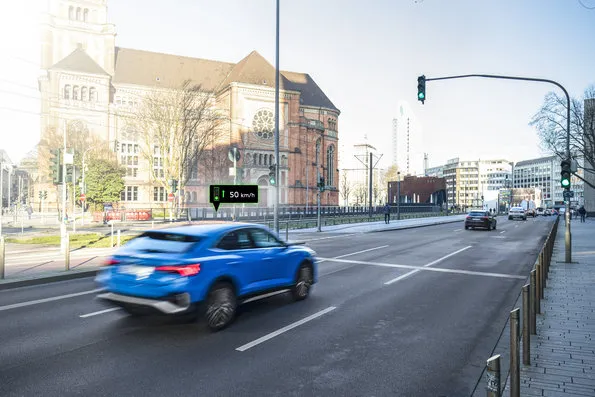Audi's top-selling model released excessive toxic diesel emissions in results from lab tests run by the European Commission and seen by Reuters, raising suspicions of wrongdoing at Volkswagen's luxury division.
The results threaten to embroil Audi in the scandal that has engulfed the company since it admitted cheating US emissions tests with software to mask nitrogen oxides (NOx).
The lab tests run by the European Commission's Joint Research Center (JRC) in August showed the latest Euro 6 diesel gener
December 16, 2016
Read time: 2 mins
The results threaten to embroil Audi in the scandal that has engulfed the company since it admitted cheating US emissions tests with software to mask nitrogen oxides (NOx).
The lab tests run by the European Commission's Joint Research Center (JRC) in August showed the latest Euro 6 diesel generation A3 emitted 163 milligrams of nitrogen oxides per kilometre, double the statutory 80mg cap.
A separate lab-based test showed the A3 emitting 140mg of NOx at an engine temperature of 10 degrees Celsius, but emissions were below 80mg when the car was run with a cold engine.
"The differences between cold start and hot start are hard to explain," said Bas Eikhout, a lawmaker on the European Parliament's inquiry committee into the VW scandal.
Audi dismissed the results, saying the level of 163 milligrams was inflated by erroneous measurements on behalf of the JRC. Key parameters such as the state of the catalytic converter systems of the tested vehicles remain unclear, a spokesman said by email.
Other tests in Britain and Germany have shown the A3 compact, which topped the brand's sales rankings this year ahead of the A4 and A6 models, is complying with legal limits, he said.
EU regulators depend on the JRC's work to help to shape policy, but member states are responsible for policing their car industries.
A Commission spokeswoman said that the JRC's results were still preliminary. "If the test results raise some suspicion of wrongdoing, such as the installation of prohibited defeat devices, they will be shared with all relevant approval authorities," she said.
Germany's KBA motor vehicle authority declined to comment.








